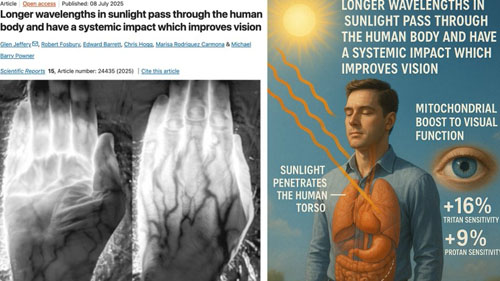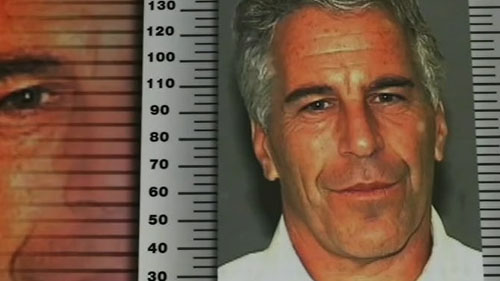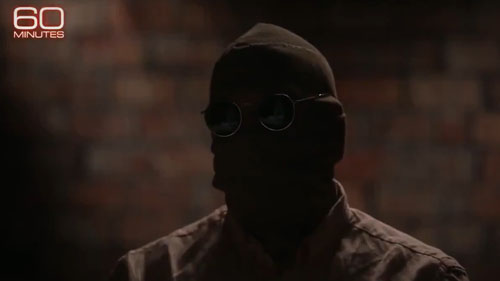| Recent Featured Videos and Articles | Eastern “Orthodoxy” Refuted | How To Avoid Sin | The Antichrist Identified! | What Fake Christians Get Wrong About Ephesians | Why So Many Can't Believe | “Magicians” Prove A Spiritual World Exists | Amazing Evidence For God | News Links |
| Vatican II “Catholic” Church Exposed | Steps To Convert | Outside The Church There Is No Salvation | E-Exchanges | The Holy Rosary | Padre Pio | Traditional Catholic Issues And Groups | Help Save Souls: Donate |  |









 " />
" /> " />
" /> " />
" /> " />
" /> " />
" />




The Scandals and Heresies of John Paul I
John Paul I (Albino Luciani)
The man who claimed to be pope between Paul VI and John Paul II for 33 days in 1978…
Albino Luciani (John Paul I) was born the son of a committed Socialist.[2] John XXIII personally consecrated Luciani a bishop on Dec. 27, 1958.[3] Luciani was named a “cardinal” by Paul VI.[4]
Luciani had formed friendships with many non-Catholics. Phillip Potter, Secretary of the World Council of Churches, had been his house guest. Other guests of his included Jews, Anglicans and Pentecostal “Christians.” He had exchanged books and very friendly letters with Hans Kung.[5]
Luciani (John Paul I) had several times quoted Hans Kung favorably in his sermons.[6] (For those who don’t know, Hans Kung denies the Divinity of Christ.) Luciani “was aware that a number of the lay Catholics he knew were members of various lodges (Masonic) – in much the same way that he had friends who were Communists.”[7]
Luciani made a thorough study of “responsible parenthood” and consulted with many doctors and theologians. Like John XXIII and Paul VI, Luciani had studied the possibility of the “pill” being used as a “natural” method of regulating births.[8] Those who had fallen into using artificial contraception and then went to confession found Luciani “very compassionate.”[9]
In April of 1968, Albino Luciani wrote and submitted a report to Paul VI recommending that the Catholic Church should approve the use of the anovulant pill developed by Professor Pincus. Luciani recommended that this pill should become the Catholic birth-control pill.[10] United Press International (UPI) discovered that Luciani had advocated a Vatican ruling in favor of artificial birth control. Italian newspapers also carried stories. To substantiate the story, these newspaper reports referred to the Luciani document which was sent to Paul VI by “Cardinal” Urbani of Venice, in which the strong recommendation in favor of the contraceptive pill had been made.[11]
Later on during his “papacy” – when he was “John Paul I” – Luciani often quoted from the pronouncements and encyclicals of Paul VI. Notably absent was any reference of John Paul I to Humanae Vitae.[12]
On April 13, 1968, Luciani talked to the people of Vittorio Veneto about this issue of birth control.[13] Luciani made the following observations:
When Albino Luciani became “Patriarch” of Venice, his personal secretary was Father Mario Senigaglia. Senigaglia discussed with Luciani (with whom he had developed an almost father-son relationship) different moral cases involving parishioners. Luciani always approved the liberal view that Senigaglia took. Senigaglia said: “He was a very understanding man. Very many times I would hear him say to couples, ‘We have made of sex the only sin, when in fact it is linked to human weakness and frailty and is therefore perhaps the least of sins.’”[15]
Senigaglia confirmed that Luciani’s personal view on divorce would have surprised his critics: “He could and did accept divorcees. He also easily accepted others who were living in what the Church calls ‘sin.’”[16]
He was also a promoter of false ecumenism. “During his nine years there [as “Patriarch” of Venice] he hosted five ecumenical conferences, including the meeting of the Anglican-Roman Catholic International Commission which introduced an agreed statement on authority in 1976…”[17]
LUCIANI ON A NEW INTERNATIONAL ORGANIZATION
Luciani: “A gradual, controlled, and universal disarmament is possible only if an international organization with more efficient powers and possibilities for sanctions than the present United Nations comes into being…”[18]
LUCIANI ON CHRISTIANS
Quoting Gandhi, Luciani said: “I admire Christ but not Christians.”[19]
As Patriarch of Venice, on December 24, 1977, Albino Luciani stated the following about the French Revolution: “…the intentions of those who had kindled insurrection and revolution at the beginning had been very good ones, and the slogan proclaimed was ‘Liberty, Fraternity, Equality.’”[21]
Shortly before the 1978 conclave, Luciani was asked his opinion of the first test-tube baby, Louise Brown. Speaking of the test-tube baby and her parents, Luciani said: “Following the example of God, who desires and loves human life, I too send my best wishes to the baby. As for the parents, I have no right to judge them; subjectively, if they acted with good intentions and in good faith, they may even have great merit before God for what they have decided and asked the doctors to do.”[22]
Luciani had more than any other “cardinal” put into practice the spirit of John XXIII’s Second Vatican Council.[23] John Paul I renounced the papal tiara and replaced the coronation ceremony with a simple celebration.[24] The tiara which was sold by Paul VI was now replaced by the pallium, a white woolen stole around the shoulders.[25]
John Paul I said the following in his first speech announcing the program for his “pontificate”:
During the Inauguration of John Paul I, he said: “We greet also with reverence and affection all the people in the world. We regard them and love them as our brothers and sisters, since they are children of the same heavenly Father and brothers and sisters in Christ Jesus.”[31]
Speaking to a friend about the schismatic Patriarch of Moscow, Nikodem, John Paul I called him “a real saint.”[32]
In a letter to the new schismatic patriarch of Moscow about the death of the recently deceased schismatic patriarch of Moscow, John Paul I said:
John Paul I calls the deceased Russian schismatic, who rejected Papal Infallibility and the last 13 dogmatic councils (among other Catholic teachings), a “devoted servant of his Church.”
John Paul I “believed in greater power-sharing with the bishops throughout the world and planned to decentralize the Vatican structure.”[34]
John Paul I said, "The Church should not have power nor possess wealth... How beautiful it would have been if the pope had himself voluntarily renounced all temporal power!"[35] John Paul I told the diplomatic corps that the Vatican renounced all claims to temporal power.[36]
John Paul I often spoke of Paul VI with admiration and affection: “He was a great pope and suffered much. He was not understood…”[38]
John Paul I also spoke of God as “mother.”
In his General Audience on September 13, 1978, John Paul I spoke on the subject of immutable truths and said:
In September 1978, Luciani was heard in the papal apartments talking to his Secretary of State, “Cardinal” Villot: “I will be happy to talk to this United States delegation on the issue. To my mind we cannot leave the situation as it currently stands.” The “issue” was world population. The “situation” was Humanae Vitae.[41]
At the top of his list of priorities of reform and change was radically altering the Vatican’s relationship with capitalism and alleviating what he believed was the suffering that had stemmed directly from Humanae Vitae.[42] [We want to make it clear that we are not suggesting that Humanae Vitae was a good document. Not at all. Humanae Vitae taught that couples could use “natural” birth control and have no children at all, as is covered in this book. The point is that Humanae Vitae did denounce artificial contraception, and John Paul I was very opposed to it for that reason.]
In May of 1978, Luciani had been invited to attend and speak at an international congress being held in Milan on June 21-22. The main purpose of the congress was to celebrate the upcoming anniversary of the encyclical Humanae Vitae. Luciani had let it be known that he would not speak at the congress and that he would not attend.[43]
On September 19, 1978, John Paul I had a meeting with his Secretary of State “Cardinal” Villot. John Paul I stated:
The Vatican claimed that John Paul I died of a massive heart attack around 11p.m. on September 28, 1978.[45]
We have proven that John Paul I was a manifest heretic who, among other things, fully approved of the religious indifferentism and false ecumenism of the Second Vatican Council. Since he was a heretic, he could not have been a validly elected pope. He was a non-Catholic antipope.
[1] David Yallop, In God’s Name (An investigation into the Murder of John Paul I), Bantam Books, 1984, pp. 60-61.
[2] David Yallop, In God’s Name, p. 60.
[3] Raymond and Lauretta Seabeck, The Smiling Pope, Huntington, IN: Our Sunday Visitor Publishing, 2004, p. 27.
[4] Raymond and Lauretta Seabeck, The Smiling Pope, p. 58.
[5] David Yallop, In God’s Name, pp. 86, 190.
[6] David Yallop, In God’s Name, p. 190.
[7] David Yallop, In God’s Name, p. 201.
[8] Raymond and Lauretta Seabeck, The Smiling Pope, p. 35.
[9] Raymond and Lauretta Seabeck, The Smiling Pope, p. 36.
[10] David Yallop, In God’s Name, p. 32.
[11] David Yallop, In God’s Name, p. 191.
[12] David Yallop, In God’s Name, p. 192.
[13] David Yallop, In God’s Name, p. 32.
[14] David Yallop, In God’s Name, p. 33.
[15] David Yallop, In God’s Name, p. 61.
[16] David Yallop, In God’s Name, pp. 60-61.
[17] J.N.D. Kelly, Oxford Dictionary of Popes, Oxford University Press, 2005, p. 325.
[18] David Yallop, In God’s Name, p. 62.
[19] David Yallop, In God’s Name, p. 65.
[20] David Yallop, In God’s Name, p. 60.
[21] Raymond and Lauretta Seabeck, The Smiling Pope, p. 120.
[22] David Yallop, In God’s Name, p. 233.
[23] David Yallop, In God’s Name, p. 90.
[24] Luigi Accattoli, When A Pope Asks Forgiveness, New York: Alba House and Daughters of St. Paul, 1998, p. 37.
[25] David Yallop, In God’s Name, p. 185.
[26] L’ Osservatore Romano (The Vatican’s Newspaper), Aug. 31, 1978, p. 6.
[27] L’ Osservatore Romano, Aug. 31, 1978, p. 6.
[28] L’ Osservatore Romano, Aug. 31, 1978, p. 6.
[29] L’ Osservatore Romano, Aug. 31, 1978, p. 6.
[30] L’ Osservatore Romano, Aug. 31, 1978, p. 6.
[31] L’ Osservatore Romano, Sept. 7, 1978, p. 1.
[32] Raymond and Lauretta Seabeck, The Smiling Pope, p. 64.
[33] L’ Osservatore Romano, Sept. 14, 1978, p. 2.
[34] David Yallop, In God’s Name, p. 189.
[35] Luigi Accattoli, When A Pope Asks Forgiveness, p. 44.
[36] David Yallop, In God’s Name, p. 210.
[37] The Papal Encyclicals, Vol. 1 (1740-1878), p. 359.
[38] Raymond and Lauretta Seabeck, The Smiling Pope, p. 44.
[39] L' Osservatore Romano, September 21, 1978, p. 2.
[40] L’ Osservatore Romano, Sept. 21, 1978, p. 1.
[41] David Yallop, In God’s Name, p. 192,193.
[42] David Yallop, In God’s Name, p. 194.
[43] David Yallop, In God’s Name, p. 192.
[44] David Yallop, In God’s Name, p. 196.
[45] Raymond and Lauretta Seabeck, The Smiling Pope, p. 70.
Sign up for our free e-mail list to see future vaticancatholic.com videos and articles.
Recent Content
^